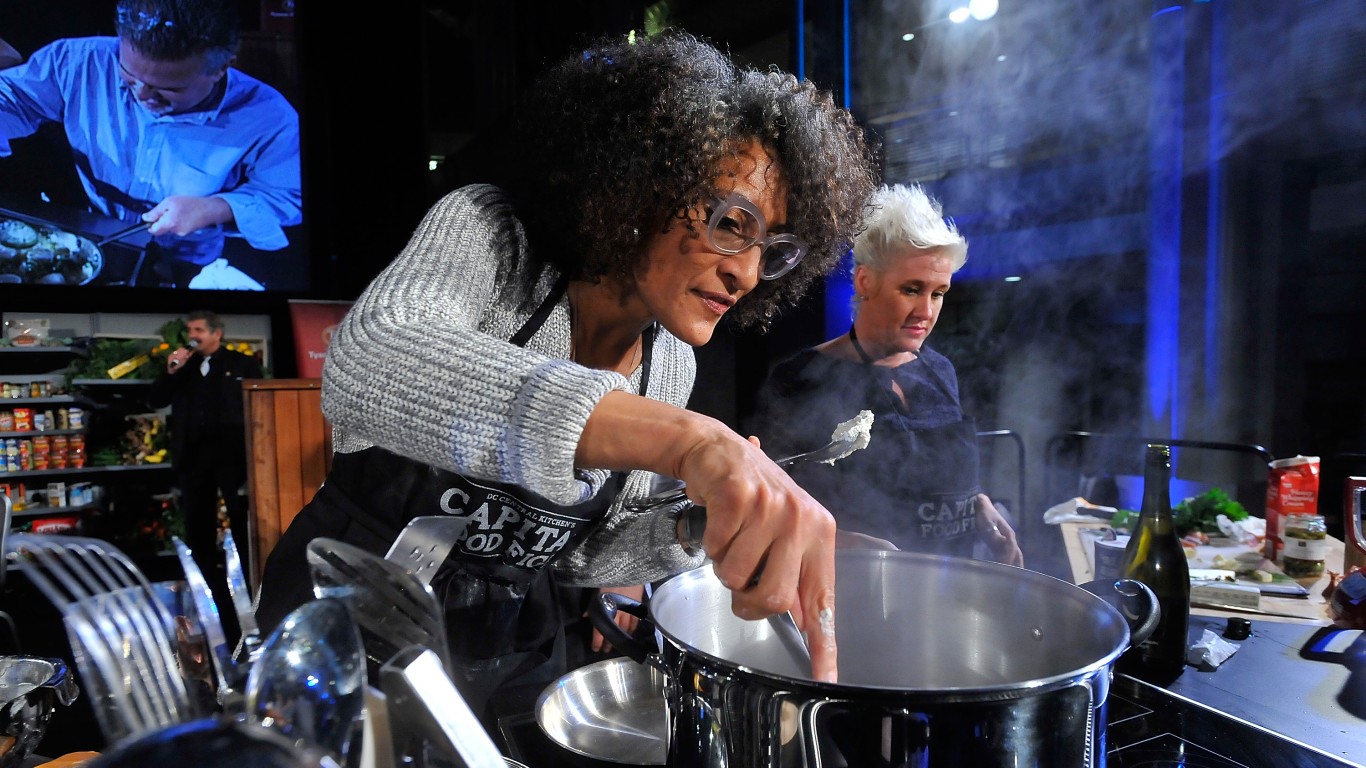
Black chefs and cooks have helped shape the way Americans eat since the country’s earliest days. They brought ingredients and culinary techniques to these shores from Africa; developed a vast repertoire of dishes now known generically as “Southern;” and in more recent times have become celebrated chefs and restaurateurs, mastering other cuisines, honoring the food traditions of the African diaspora, and expanding the definition of what American cooking, which has deep roots in African-American culture, can and should be. (These are iconic Southern foods every American should know.)
While the names of many key Black culinary figures of earlier times have sadly been lost to history, their legacies persist to the present day, and the contemporary food scene in America is rich with chefs of color who, thankfully, are being recognized and praised – though their representation in leadership positions in professional restaurant kitchens is still far behind where it should be.
To compile a list of 24 Black chefs you should know, both living and deceased, 24/7 Tempo consulted articles and lists in numerous culinary and general interest publications, including Cuisine Noir magazine, African American Chefs Hall of Fame, Vittles, Taste of Home, the New York Times, Black Past, and Delish.
Click here to learn about 24 Black chefs you should know
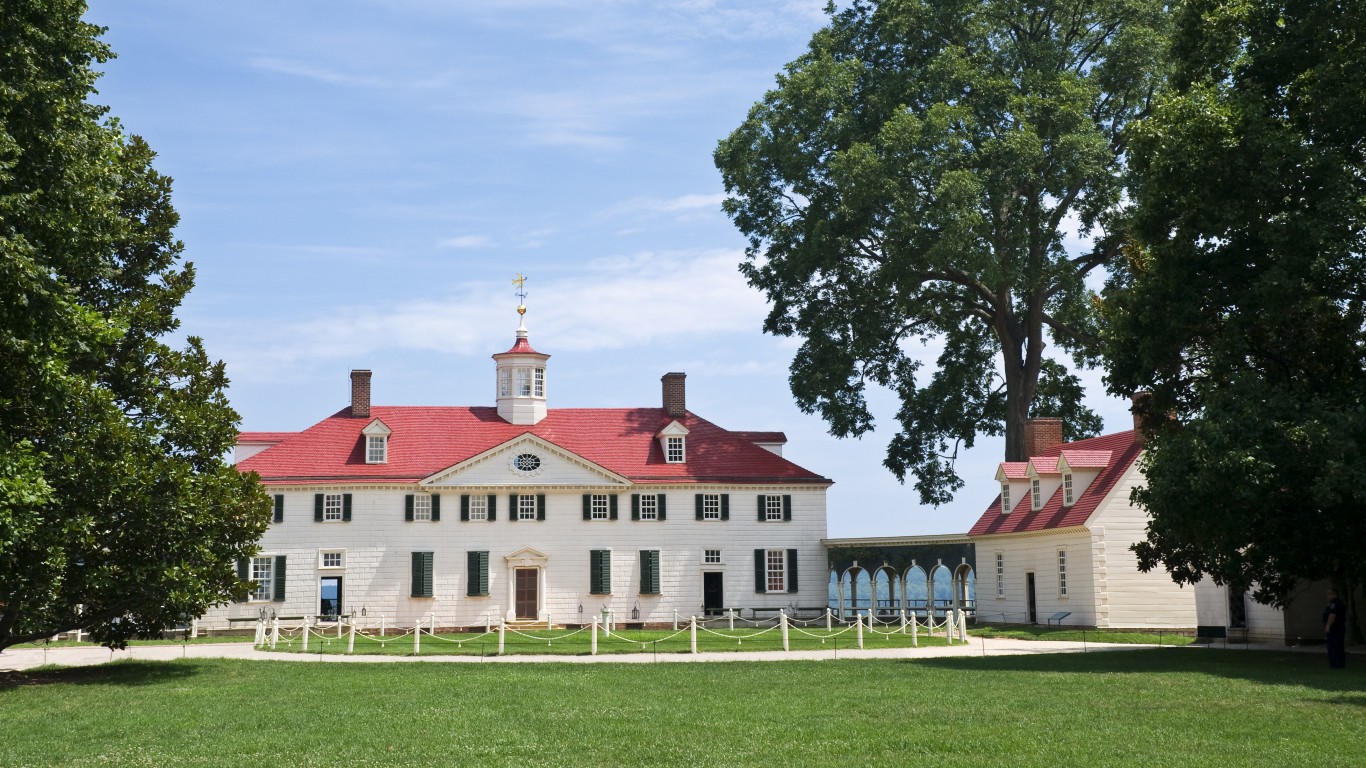
Hercules Posey (1748-1812)
Hercules Posey, an enslaved African, was George Washington’s personal chef. Nicknamed “Uncle Harkless,” Posey served for many years as the chief cook at Washington’s Virginia mansion, Mount Vernon, as well as at his presidential mansion in the then-capital of Philadelphia. Hercules famously escaped to freedom on Washington’s 65th birthday in 1797.
[in-text-ad]
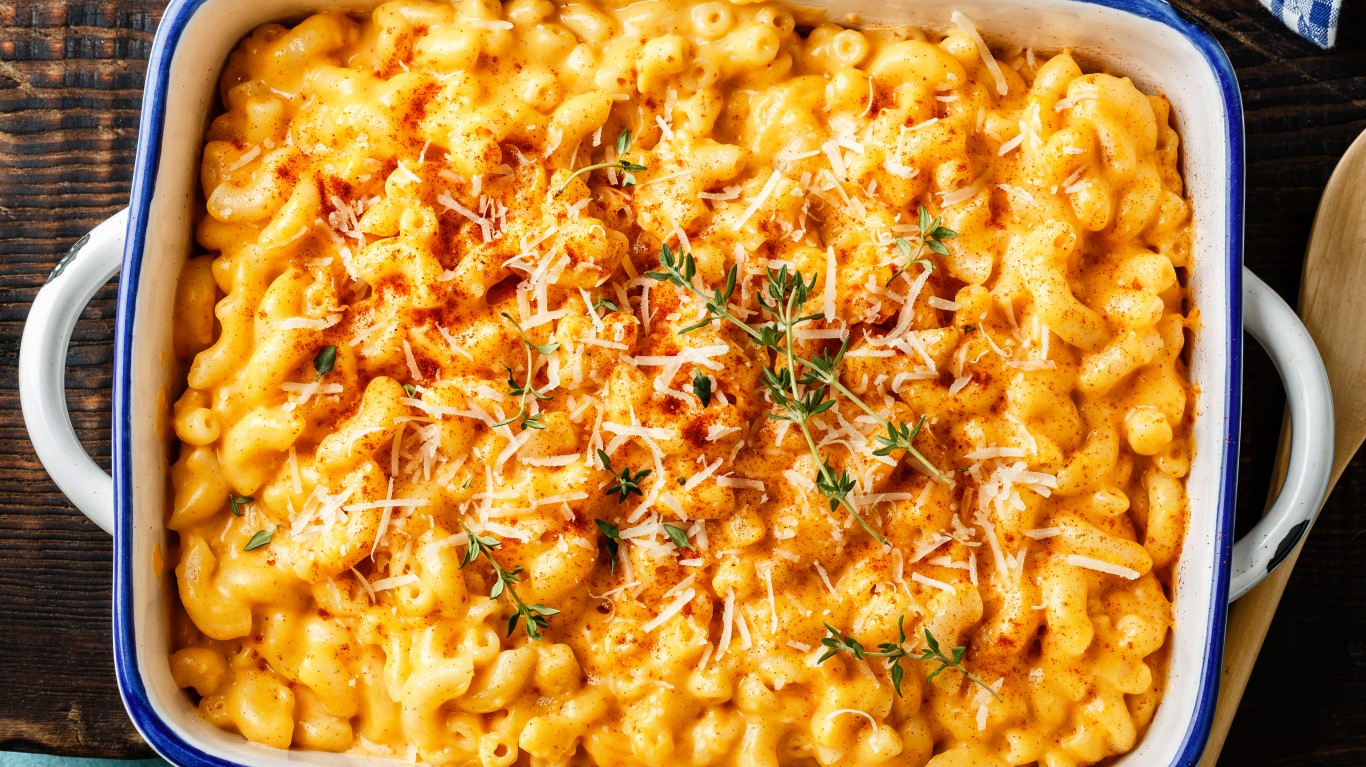
James Hemings (1765-1801)
James Hemings became enslaved to Thomas Jefferson at eight years of age and at 19 he accompanied Jefferson to Paris when the Founding Father was appointed Minister to France. While there, he became the first American of any race to train as a chef in France. After Jefferson’s return to America, Hemings, and served as his chef at Monticello. While in France, Hemings learned to make a French dish of pasta and cheese, which he introduced to America; it evolved into today’s macaroni and cheese. Hemings was the older brother of Sally Hemings, another of Jefferson’s slaves, whom he is said to have raped repeatedly and who gave birth to six of his children.
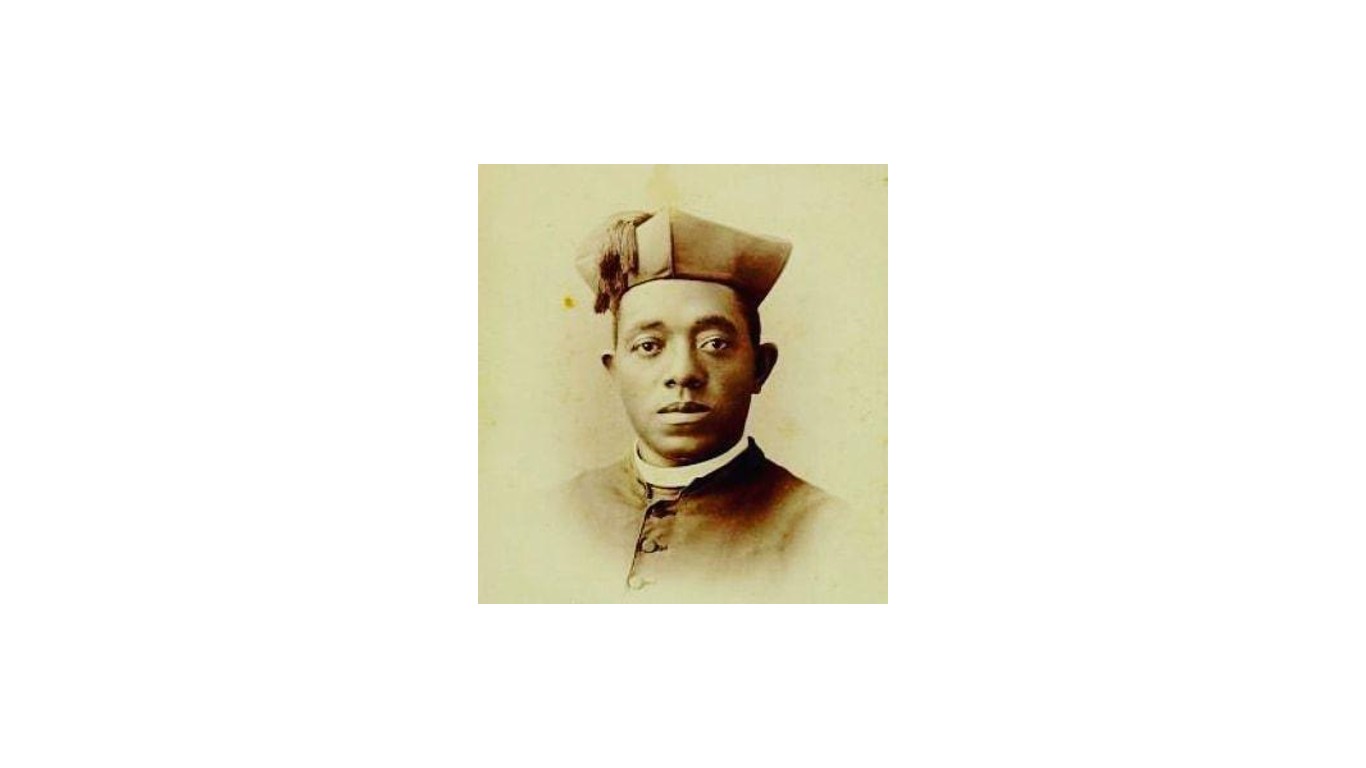
Augustus Jackson (1808-1852)
Augustus Jackson, a White House chef during the 1820s, has been called “the father of ice cream.” Though he didn’t invent the dessert, he pioneered many of the manufacturing techniques that are still in use today, including ways to control the custard while it’s freezing and the idea of adding salt to water to lower its freezing point. After leaving the White House he created a successful Philadelphia catering business and sold his frozen desserts to area ice cream parlors, and died one of the city’s wealthiest residents.

George Speck (George Crum) (1824-1914)
George Speck, also known as George Crum, was the chef at an upscale restaurant near Saratoga Springs, New York, called Moon’s Lake House. While he was hailed for his skill at preparing wild game, he’s best known as the inventor of the potato chip. As legend has it, in the 1850s, during a busy dinner rush, Speck (or possibly his sister, Catherine Wicks) sliced potatoes super-thin and dropped them into a frying pan. He helped make potato chips a popular snack by serving them at Moon’s and a restaurant of his own that he later opened; for years, potato chips were referred to as “Saratoga chips.”
[in-text-ad-2]
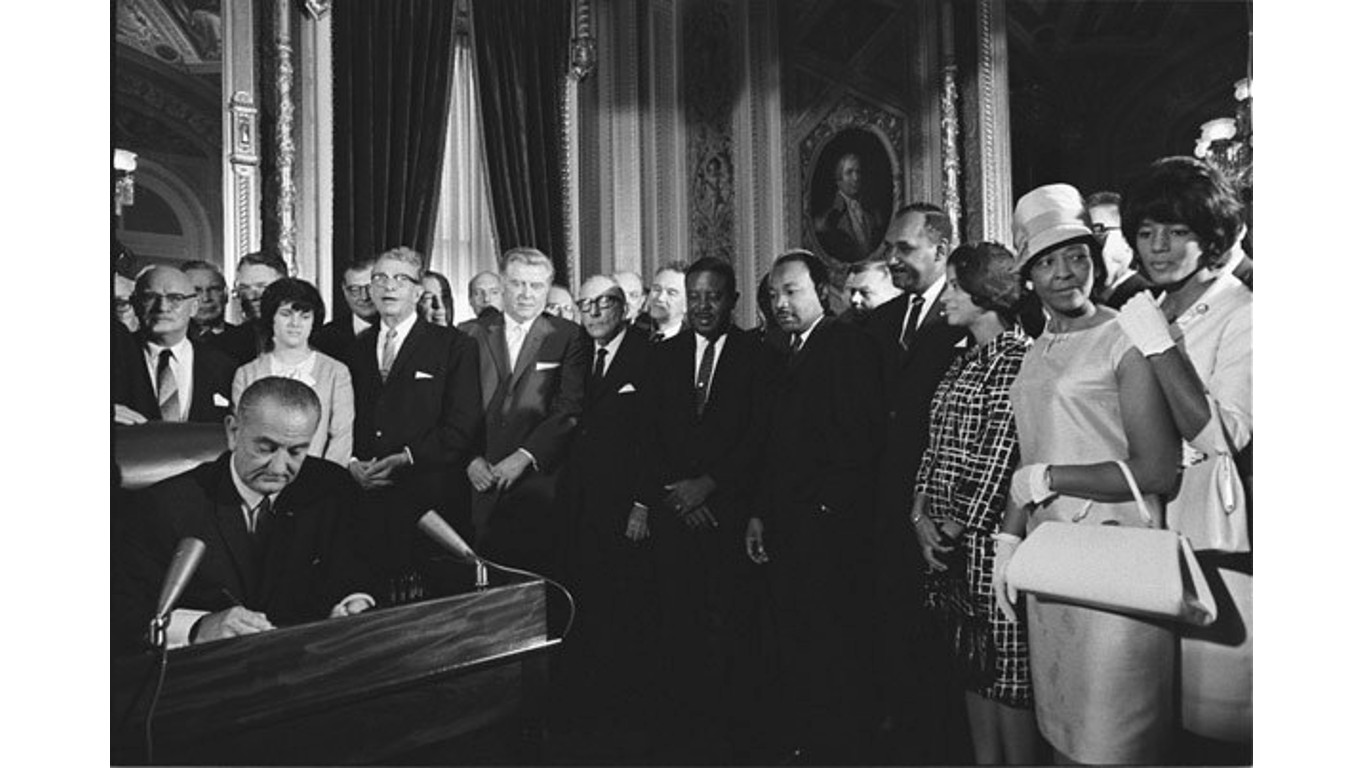
Zephyr Wright (1905-1988)
Zephyr Wright served as personal chef to Lyndon and Lady Bird Johnson from 1942 until 1969, and worked in the White House kitchen during LBJ’s presidency. She’s best known for her activism; she faced major racism while traveling with Johnson during his time as senator, and as she had his ear and was considered a friend, she offered him advice on advocating for civil rights. She witnessed Johnson signing the Civil Rights Act of 1974, and after the ceremony he gave her the pen he used to sign it.
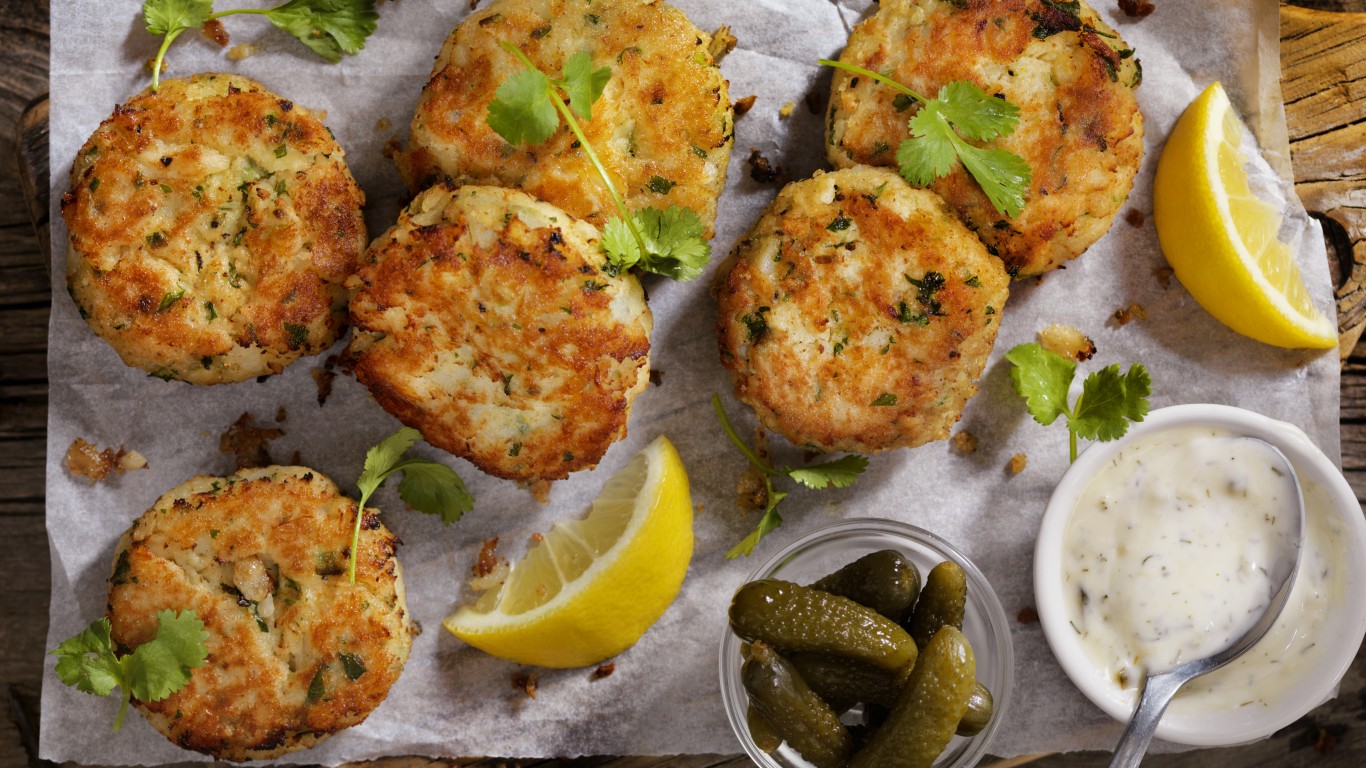
Robert W. Lee (1911-1999)
Robert W. Lee began cooking at the age of seven and worked his way through the ranks cooking at luxury hotels in his native Atlanta and in Charleston before being named executive chef at Harrisburg, Pennsylvania’s Harrisburger Hotel in the late 1940s. He spent 27 years there, with an entire African-American staff. He was the city’s first African-American chef, and while there he trained countless young chefs and introduced the city to many traditional Southern dishes including his signature Southern-style crab cakes.
[in-text-ad]

Edna Lewis (1916-2006)
Born in a small farming settlement of freed slaves and their descendants in Virginia, Edna Lewis became a cook in New York City in the late 1930s but didn’t achieve renown until 1976, when she wrote her seminal “The Taste of Country Cooking.” The cookbook shared traditional Southern recipes as well as stories and information about Southern and African-American food, and it helped cement her reputation as the “Grand Dame of Southern Cooking” and a champion of fresh, seasonal ingredients, especially greens. She returned to restaurants in the late 1980s, leaving her mark at historic restaurants including Fearrington House in Pittsboro, North Carolina, and Gage & Tollner in Brooklyn, which recently reopened with several homages to her influence on the menu.
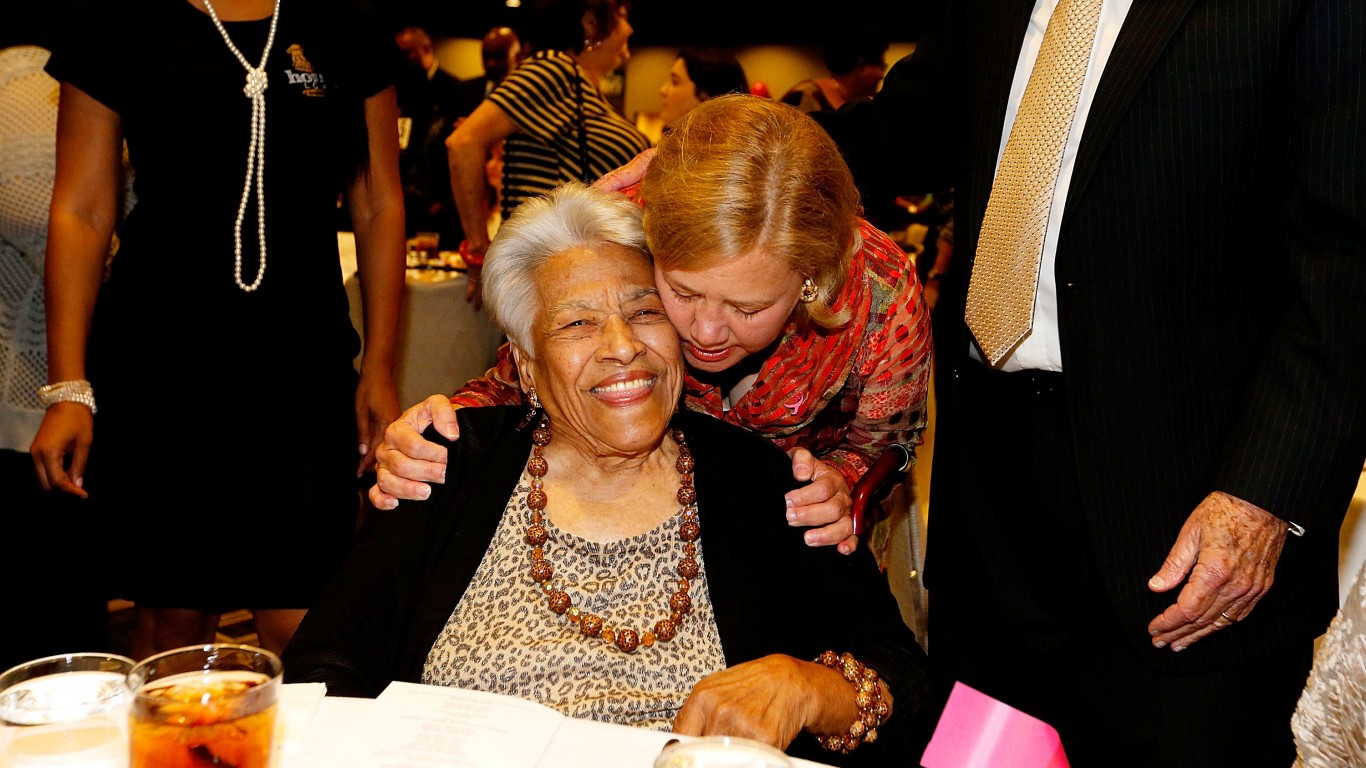
Leah Chase (1923-2019)
Known as the Queen of Creole Cuisine, Leah Chase married band leader Edgar “Dooky” Chase in 1946 and in the 1950s the duo took over her family’s corner store in New Orleans’ Treme neighborhood. They converted it into a restaurant called Dooky Chase’s, and she began serving her family’s old recipes including fried chicken and gumbo as well as others, like shrimp Clemenceau, that were typically only available at whites-only restaurants. Dooky Chase’s became a cornerstone of the civil rights movement, hosting black voter registration campaign organizers, the NAACP, and leaders including Martin Luther King, Jr. Chase remained at the helm until her passing in 2019, and her restaurant remains a New Orleans must-visit.
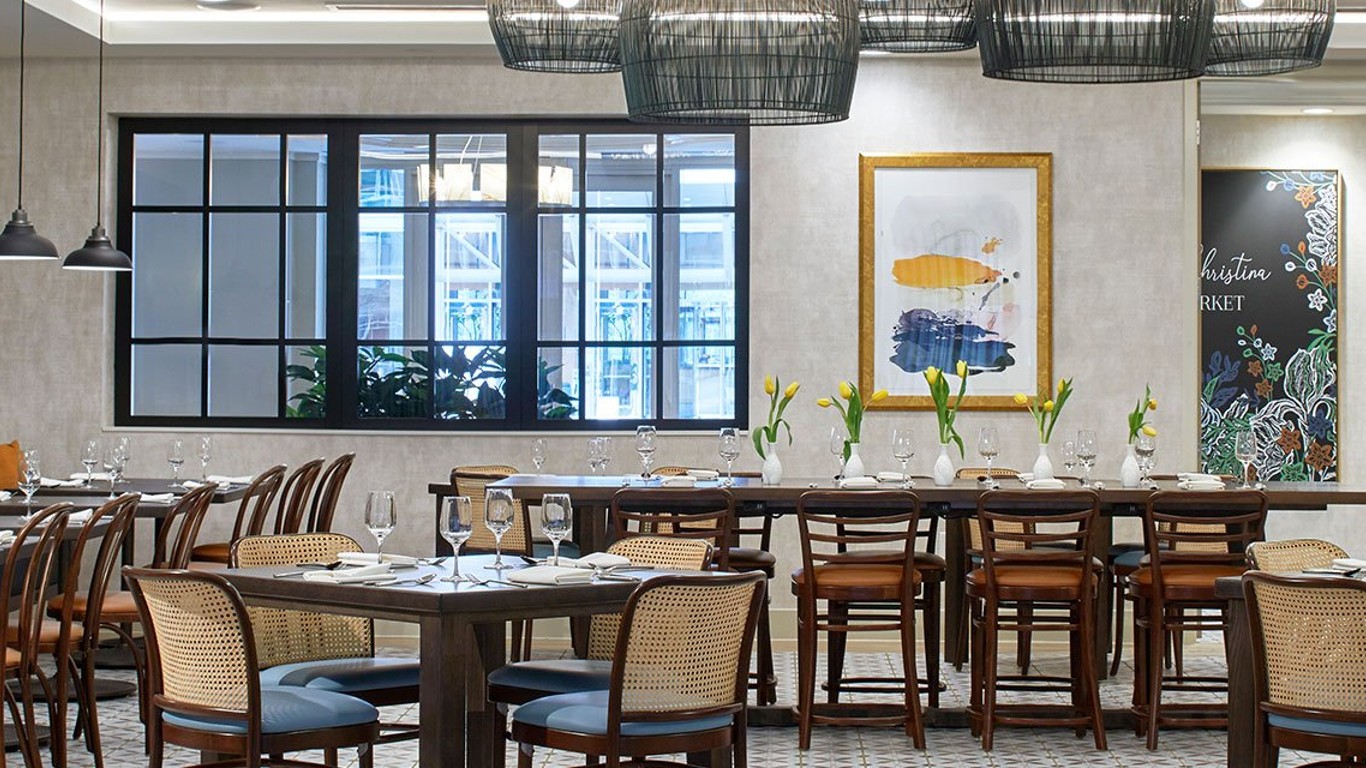
Darryl E. Evans (1961-2014)
Darryl Evans was the first African American member of the U.S. Culinary Olympics team, with whom he won two individual gold medals; he also was named Chef of the Year by the Greater Atlanta Chef’s Association in 1996. He’s best known for the time he spent as executive chef at Villa Christina, an acclaimed fine-dining Italian restaurant in Atlanta. In 1968, his first year there, the restaurant was named one of just 15 American eateries recognized by the Italian government for serving genuine Italian cuisine. He achieved renown for marrying the lightness of California cuisine with the bold flavors of the Italian table, and mentored many young Black Atlanta chefs before passing away at age 52 in 2014.
[in-text-ad-2]

Joe Randall (1945- )
Hailed as the Dean of Southern Cuisine, Joe Randall is one of the most influential chefs in Savannah, Georgia.. He came to the city in 1999 after years in catering and consulting, opening Joe Randall’s Cooking School there in 2000. During his 16 years operating the school, he taught countless young chefs traditional Southern cooking techniques and such dishes as Savannah red rice and Sea Island smothered shrimp with stone-ground grits. He’s a founding board member of the Southern Food Alliance, and his cookbook, “A Taste of Heritage: the New African-American Cuisine,” is essential reading.
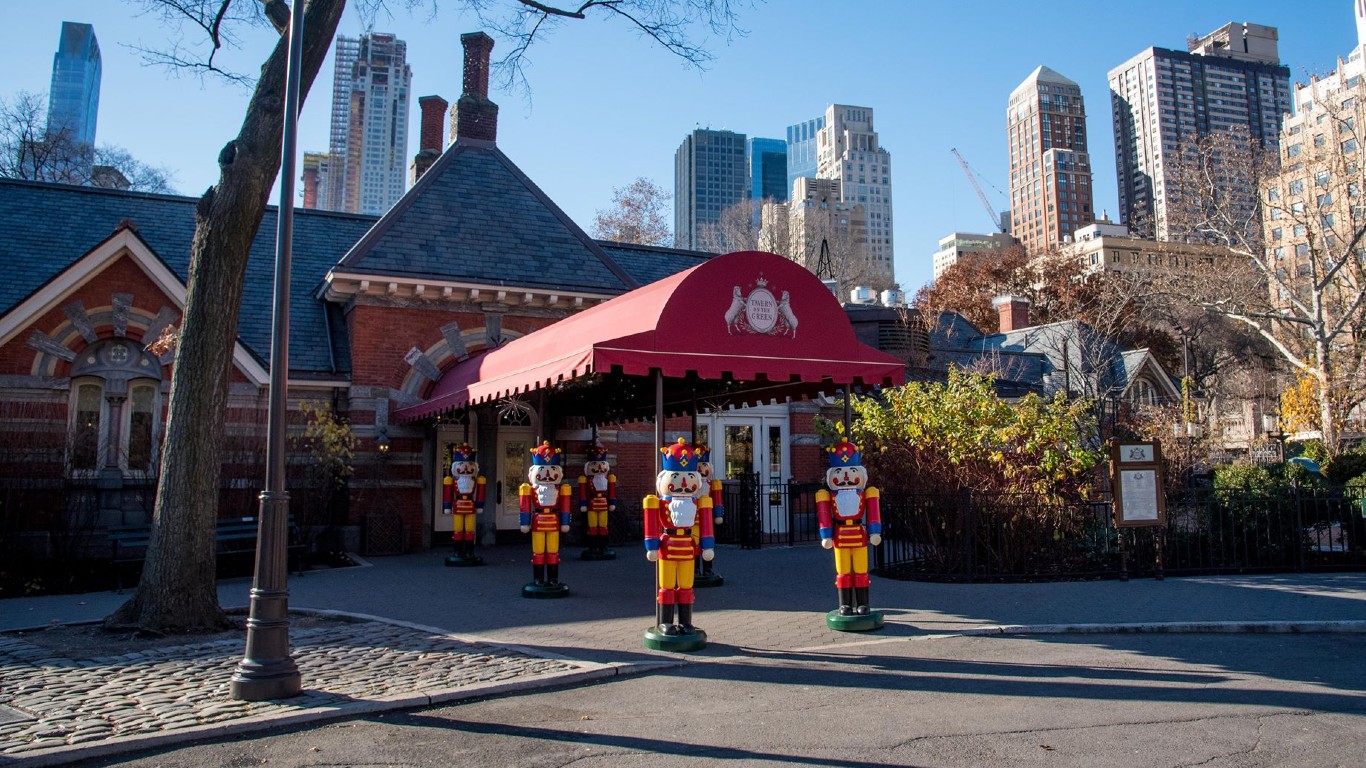
Patrick Clark (1955-1998)
Brooklyn-born chef Partick Clark trained in Britain and France before returning to the States and becoming one of the first American chefs to apply French fine-dining techniques to traditional Southern cuisine. After running his own restaurant in Manhattan – an upscale establishment inspired by the legendary Taillevent in Paris – for two years, he went on to helm kitchens at Bice in Beverly Hills, the Hay-Adams Hotel in Washington, D.C., and New York City’s Odeon and Tavern on the Green. In 1994, he won the James Beard Award for his work at the Hay-Adams, but sadly passed away at age 42 in 1998.
[in-text-ad]

Carla Hall (1964- )
Carla Hall was born in Nashville and spent time as an accountant and model before becoming a chef. She serves as executive chef at several D.C.-area restaurants and started a catering company before catching her big break on the fifth season of “Top Chef” in 2008. She was runner-up and a fan favorite, and later competed in “Top Chef: All Stars.” From 2011 to 2018 she co-hosted ABC’s food-focused talk show “The Chew,” and she brought her Southern favorites, in particular fried chicken, to Brooklyn in 2016 with Carla Hall’s Southern Kitchen, which sadly closed a year later. She remains one of the most familiar faces on food TV, most recently hosting Food Network’s “Worst Cooks in America” and “Best Baker in America.”

Rodney Scott (1971- )
Rodney Scott has been around whole-hog barbecue his whole life; he grew up in his parents’ Hemingway, North Carolina, restaurant, Scott’s Variety Store + Bar-B-Q, and started working there at age 11. He took over the business in 2011, and in 2017 he opened Rodney Scott’s BBQ in Charleston, to immediate acclaim, and three additional locations have since opened. He’s one of the few remaining pitmasters doing whole-hog ‘cue over charcoal embers the old-fashioned way. In 2018 he was named Best Chef: Southeast by the James Beard Foundation (only the second pitmaster to win a James Beard chef award), and he was featured on Netflix’s Chef’s Table in 2020.
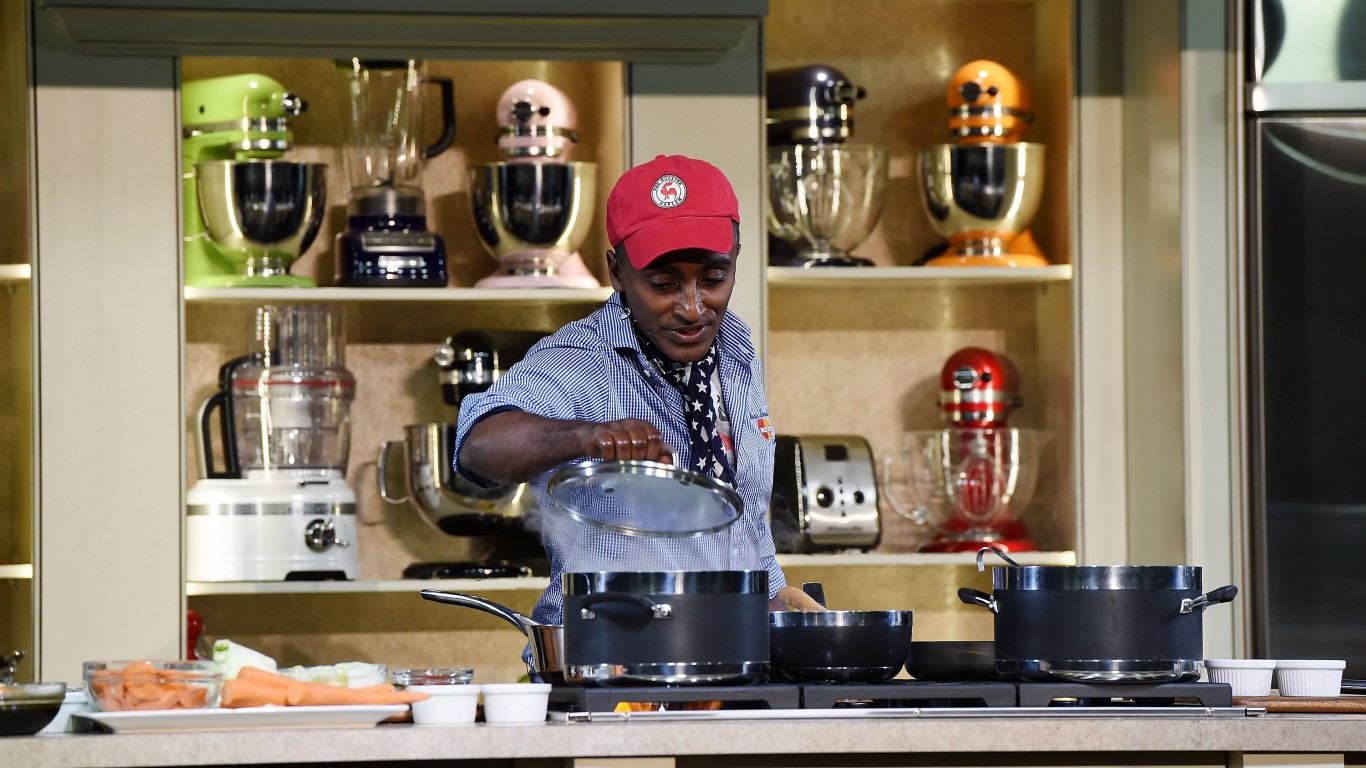
Marcus Samuelsson (1971- )
Marcus Samuelsson, who was born in Ethiopia but adopted and raised in Sweden, burst onto the scene with a bang, when at age 24 he became the youngest-ever chef to receive a three-star review from the New York Times while at the city’s renowned Nordic restaurant, Aquavit. Since then, he’s become one of the country’s best-known chefs, opening the acclaimed Red Rooster in Harlem, publishing four cookbooks and a well-reviewed memoir, appearing on countless culinary TV shows, and hosting his own PBS show, “No Passport Required.” He’s won five James Beard Awards, including Best Chef: New York City in 2003.
[in-text-ad-2]
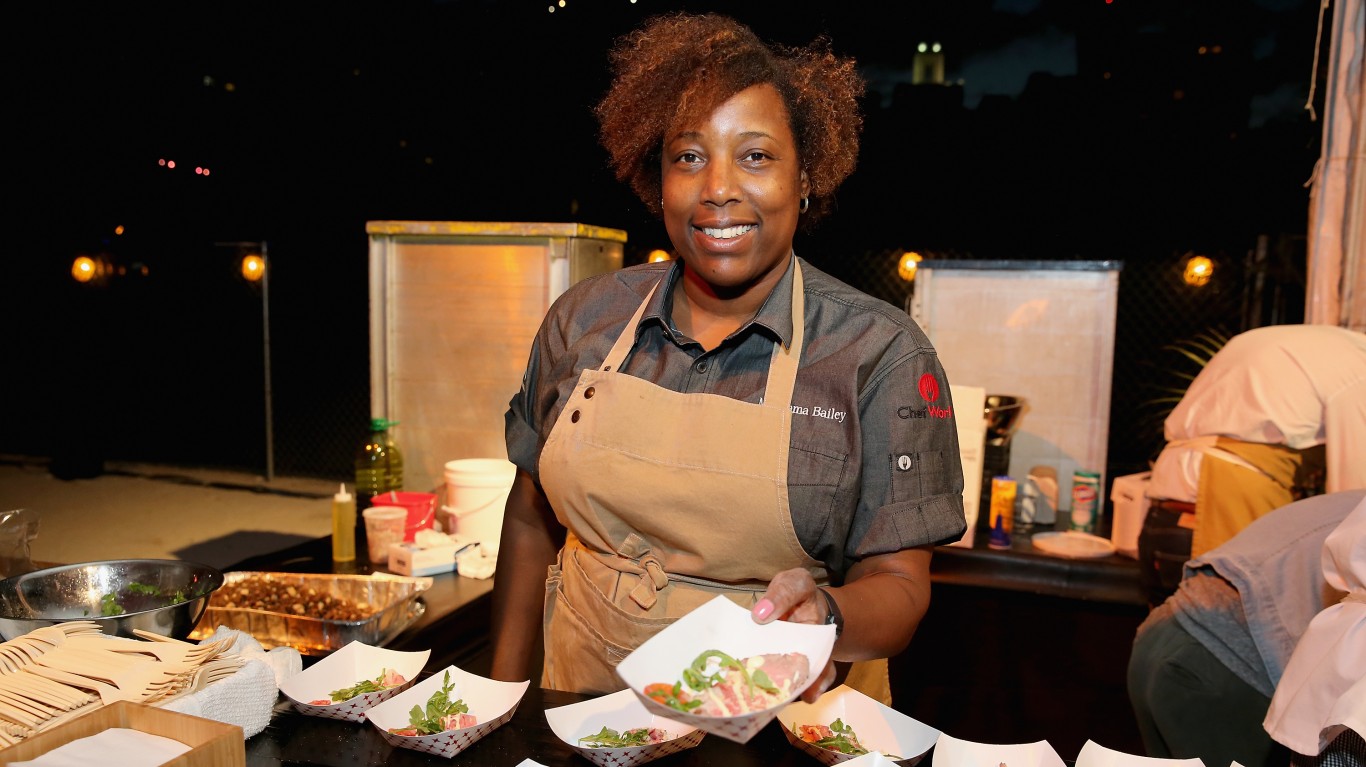
Mashama Bailey (1974- )
Bronx-born chef Mashama Bailey worked her way through the ranks at renowned New York restaurants including the Plaza Hotel’s Oak Room and Gabrielle Hamilton’s acclaimed Prune before being recruited by entrepreneur John O. Morisano to create a restaurant inside an abandoned, formerly-segregated Greyhound bus station in Savannah, Georgia. The result, The Grey, opened in 2014 to universal acclaim. The original menu was heavily inspired by the recipes of Edna Lewis and focused on classic Southern food including pork shank with greens and cornbread, but has since evolved to incorporate more African and European influences, and continues to change regularly. Bailey won the 2019 James Beard Award for Chef: Southeast.
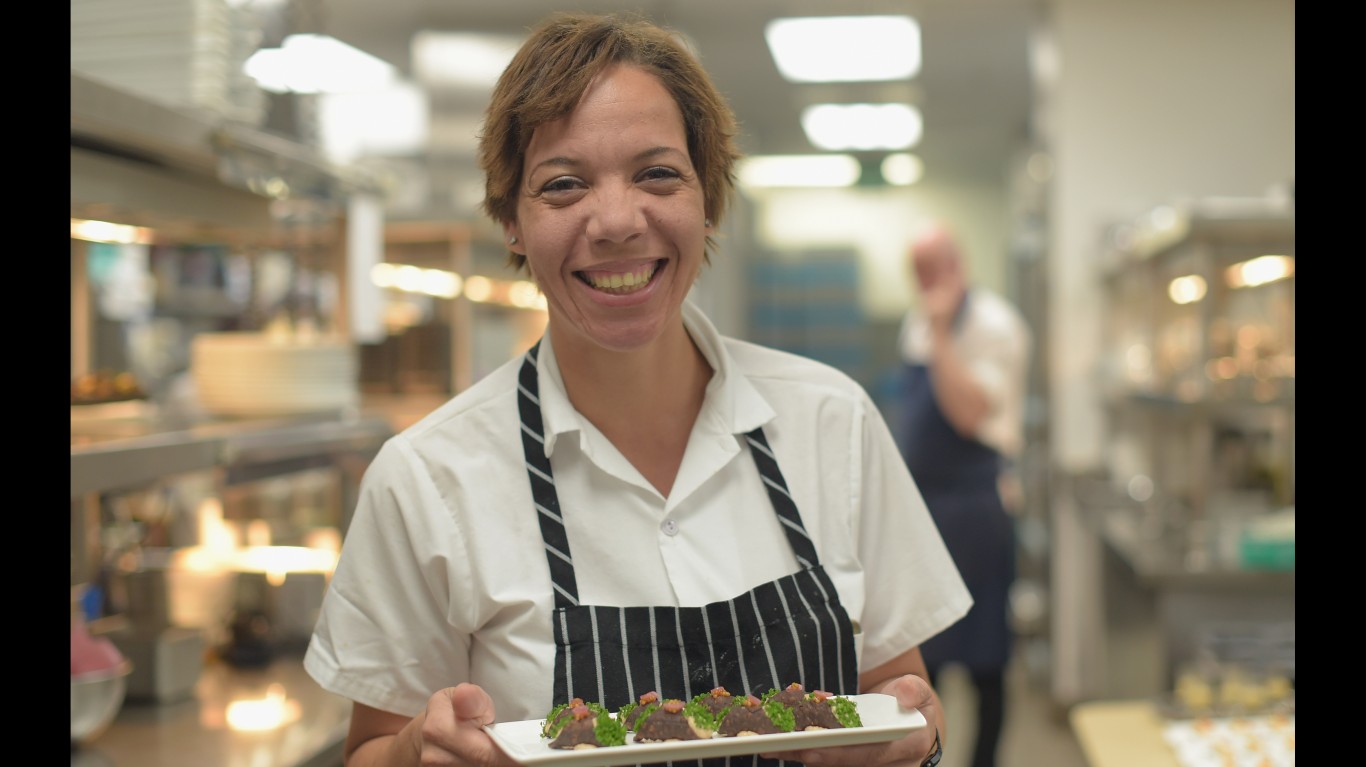
Nina Compton (1978- )
St. Lucian chef Nina Compton earned her stripes working alongside chef Daniel Boulud at his New York City flagship, Daniel, before moving to Miami and working for chefs including Norman Van Aken and Scott Conant. She served as Conant’s chef de cuisine at Scarpetta at the Fontainebleau before rocketing to fame as a highly praised runner-up on season 11 of “Top Chef.” She set up shop in New Orleans shortly thereafter, opening the critically acclaimed Compère Lapin, which serves Caribbean-inspired cuisine, in 2015; and Bywater American Bistro, a seasonal American restaurant, in 2018. Compère Lapin was identified as one of America’s 38 Best Restaurants by Eater, Compton was named “Best New Chef” by Food & Wine magazine in 2017, and she won the James Beard Award for Best Chef: South the following year.
[in-text-ad]
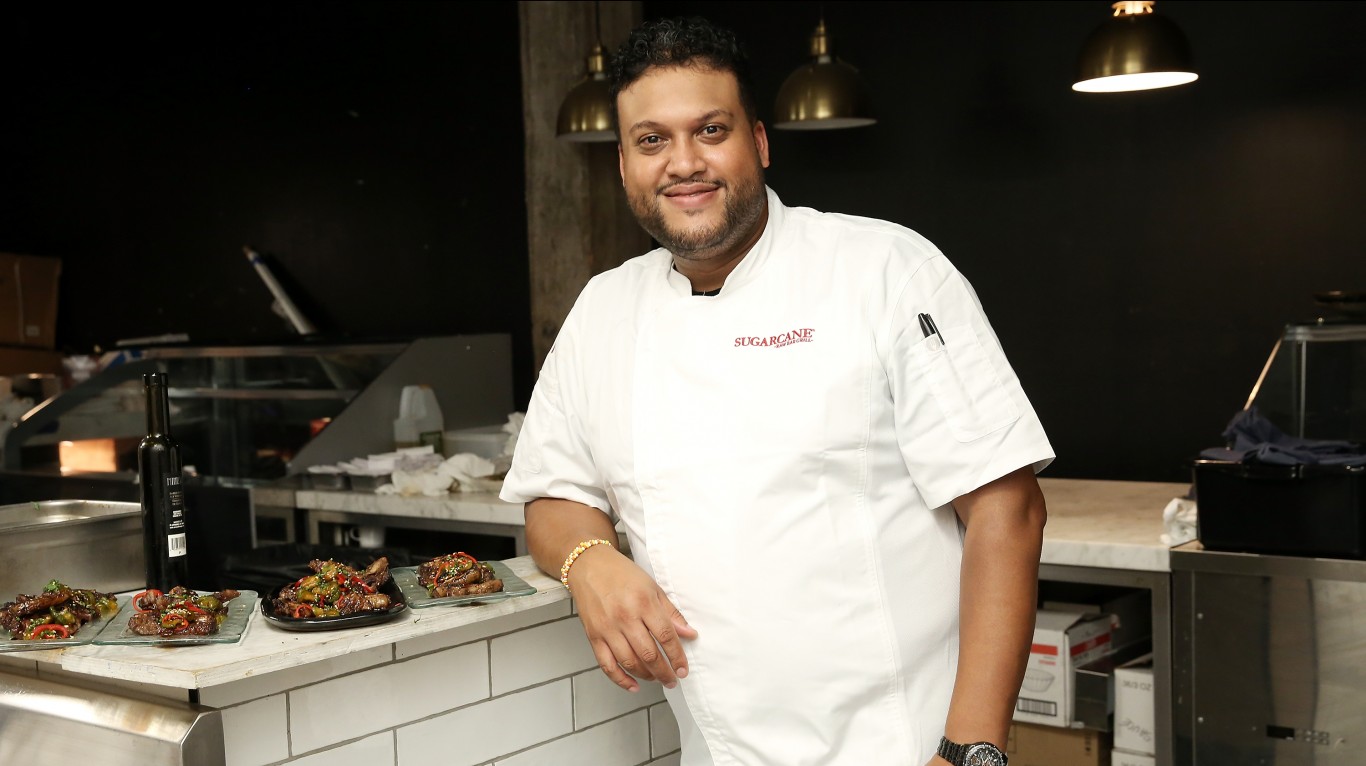
Timon Balloo (1978- )
Of Chinese and Trinidadian descent, chef Timon Balloo apprenticed at Belgium’s renowned Hotel Metropole before working under chef Allen Susser in Miami. In 2010, he opened SUGARCANE Raw Bar Grill there, which quickly achieved great renown for its global-inspired menu of sushi, raw bar items, and small and large plates served in a relaxed tropical setting. One of its signature dishes, “Duck & Waffle,” has sparked spinoff restaurants in London and Las Vegas, where there’s also another SUGARCANE.
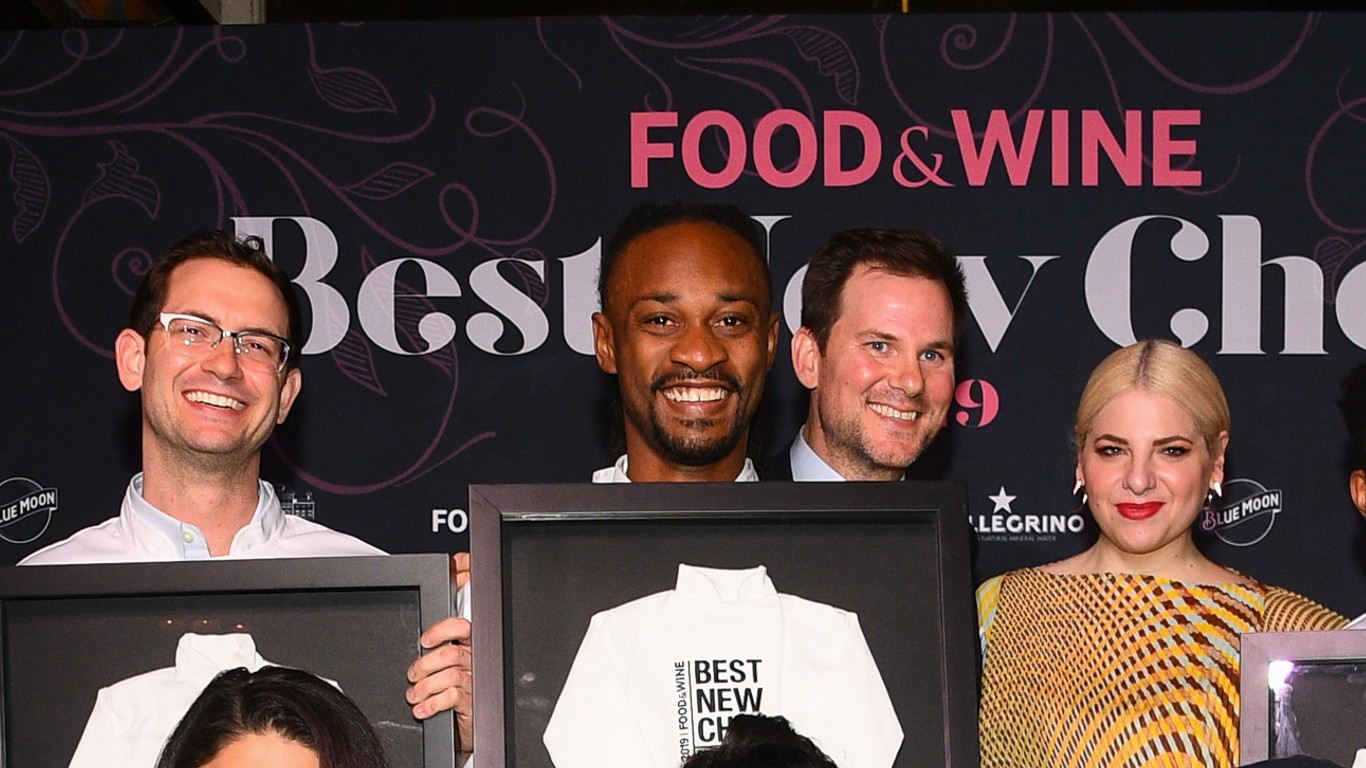
Bryan Furman (1981- )
Bryan Furman is one of Atlanta’s most renowned pitmasters, and he’s not letting adversity prevent him from achieving his dreams. His first restaurant, B’s Cracklin’ Barbecue in Savannah, racked up acclaim but burned to the ground after only nine months in operation. A second B’s Cracklin’, in Atlanta, was named Eater’s Atlanta Restaurant of the Year in 2017 for its stellar lineup of whole hog, ribs, and brisket smoked the old-fashioned way, but in 2019, that, too, burned down. Later this year Furman will be opening Bryan Furman BBQ, where he’ll continue to serve his famous whole hog along with brisket, ribs, chicken, and vegan offerings.

Preston Clark (1982- )
The son of renowned chef Patrick Clark (see above), Preston Clark is following in his father’s footsteps. After earning his bachelor’s degree from the Culinary Institute of America in 2002, Clark worked with some of the country’s top chefs, including Jean-Georges Vongerichten, Charlie Trotter, Marcus Samuelsson, and Michael Lomonaco before opening El Paseo in California’s Marin County with Sammy Hagar and Tyler Florence in 2011. Clark was nominated for the James Beard Rising Star Award that year, and he soon returned to New York, where he became Executive Chef of acclaimed restaurants Resto and its sister restaurant, The Cannibal. Since 2004, he’s been at the helm of the wildly popular Lure Fishbar, which has three New York City locations and one in Chicago.
[in-text-ad-2]

JJ Johnson (1984- )
Born on Long Island and raised in the Poconos, JJ Johnson took several trips to Ghana as a young chef, visits that heavily influenced his signature style of cooking. He opened The Cecil in Harlem in 2013, which racked up critical acclaim for its Afro-Asian menu, including being named Esquire’s Best New Restaurant in America. Since then, he’s won the James Beard Foundation Best American Cookbook Award as co-author of “Between Harlem and Heaven” and opened a global-inspired rice and grains concept called FIELDTRIP, with locations in Harlem, Rockefeller Center, and Long Island City.
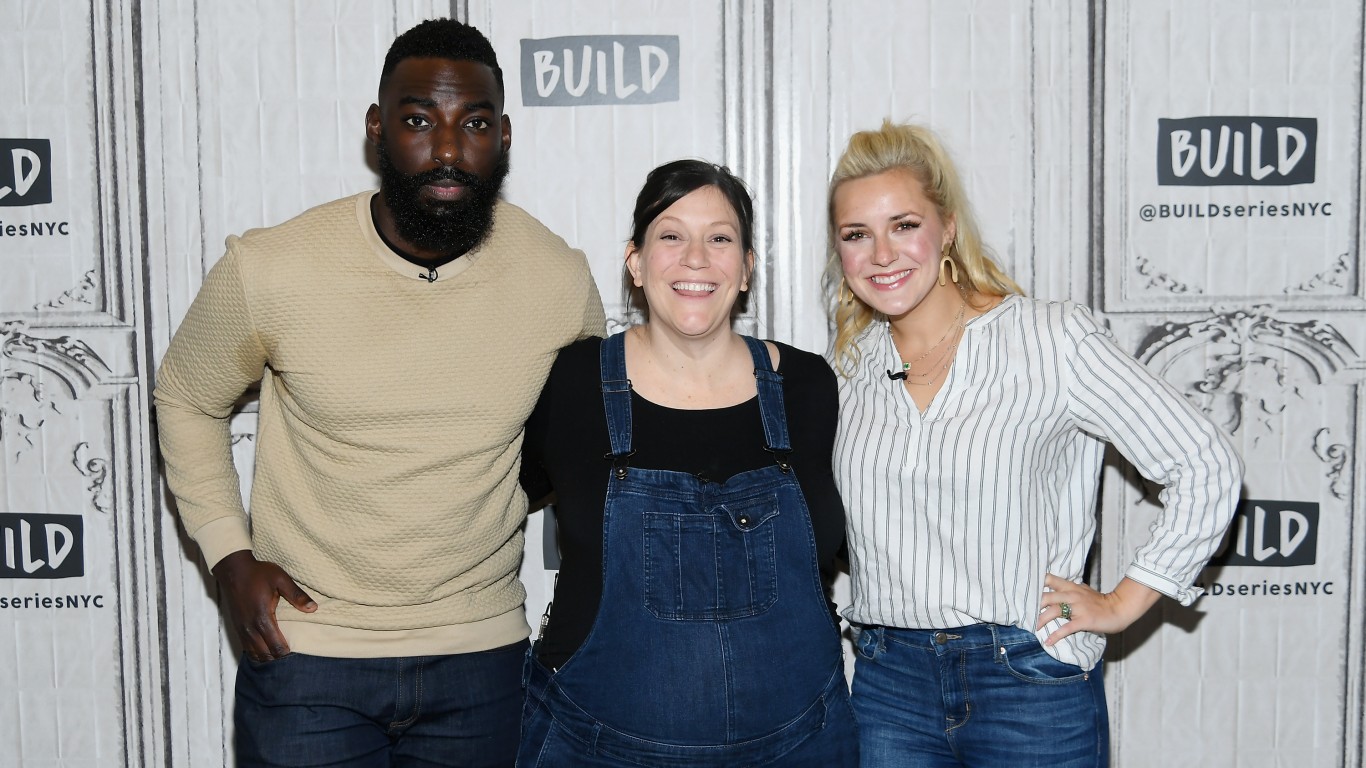
Eric Adjepong (1987- )
A finalist on “Top Chef” season 16 and standout on season 17 of “Top Chef All Stars,” Eric Adjepong is a first-generation Ghanaian-American who has used his platform on the show to introduce viewers to traditional Ghanaian cuisine. He’s passionate about the impact the West African diaspora has had on South American, Latin American, Caribbean, and American food, and his cooking explores that cuisine with a fine dining twist. He’s currently a consultant and personal chef, and is working on two cookbooks.
[in-text-ad]
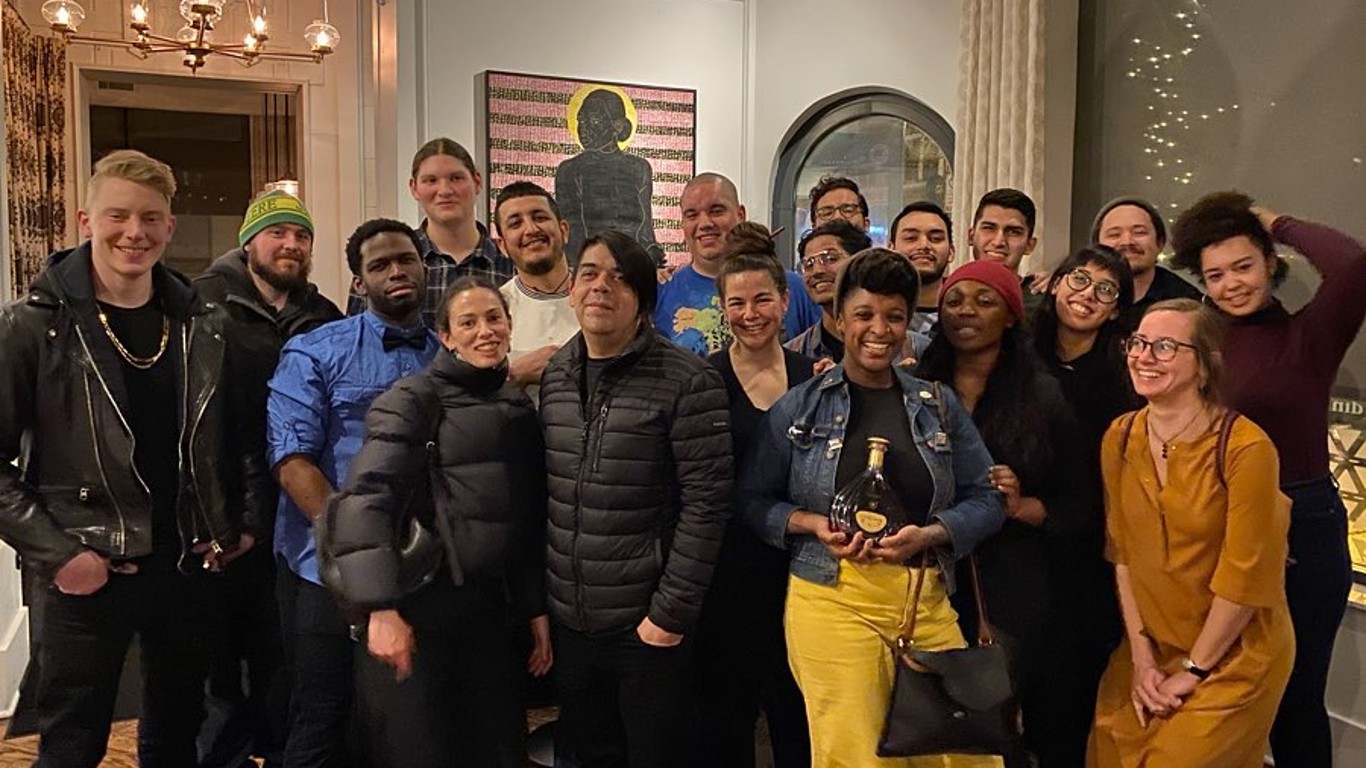
Mariya Russell (1989- )
Ohio-born Mariya Russell graduated from The Cooking and Hospitality Institute of Chicago in 2008, then spent time in kitchens in that city and in Charleston before returning to Chicago and working her way up to the position of chef de cuisine at the city’s acclaimed Oriole. While there, she was tapped to head the kitchen at Kumiko, a hip Japanese restaurant from Oriole’s owners, and Kikkō, its downstairs omakase bar. The restaurant was awarded a Michelin star in 2019 – the first place with a black woman running the kitchen to win that distinction. Shortly afterwards, though, Russell left the restaurant, citing exhaustion, and moved to Hawaii with her husband and fellow chef, Garrett, where the two are reportedly considering their next moves.
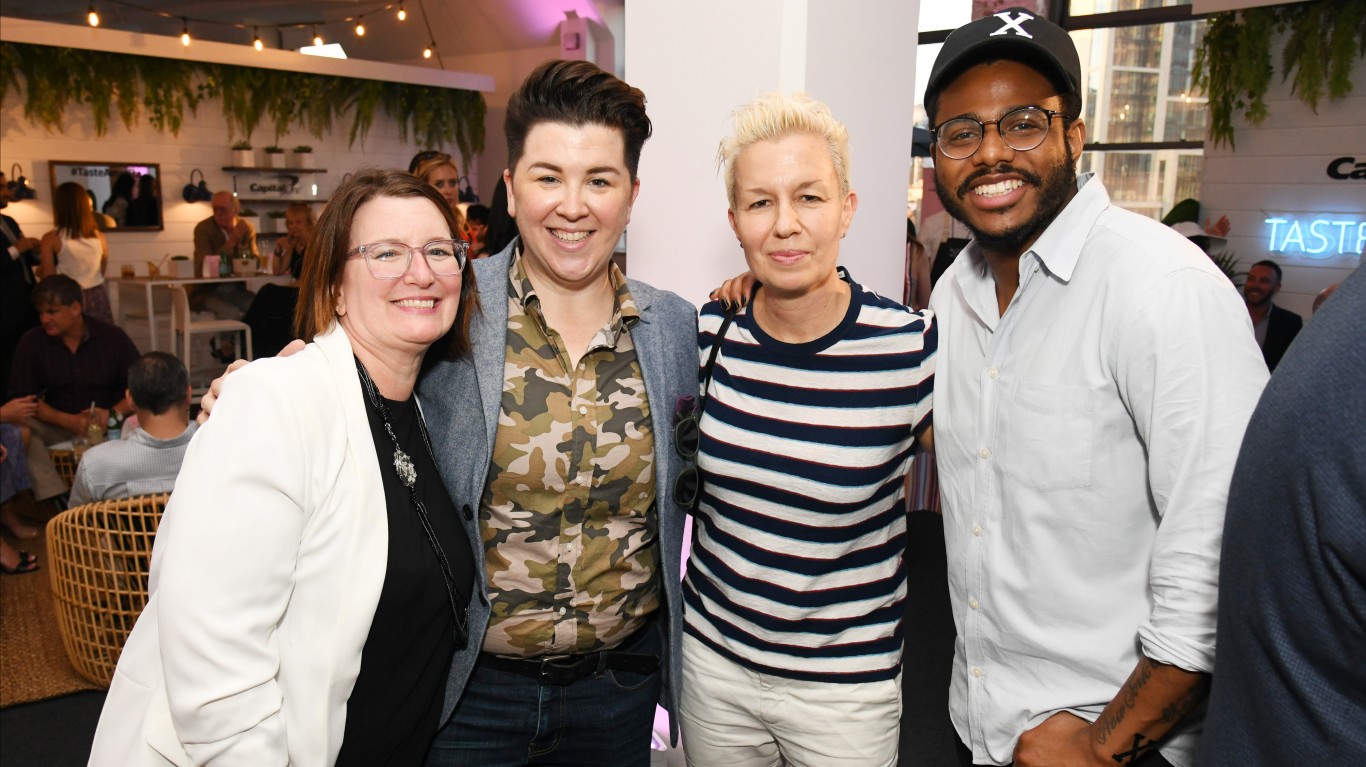
Kwame Onwuachi (1989- )
Kwame Onwuachi served as a line cook at New York’s acclaimed Eleven Madison Park before rising to fame as a contestant on “Top Chef” season 13 in 2015. The following year, he opened an ambitious restaurant in Washington, D.C., called The Shaw Bijou, which served a 13-course tasting menu and received lots of good press but closed the following year. His follow-up, Kith and Kin, opened in the city, receiving critical acclaim for its menu of Afro-Caribbean cuisine; while there, he published a well-received memoir called “Notes from a Young Black Chef.” Onwuachi was named Esquire’s Chef of the Year in 2019 as well as Rising Star Chef for 2019 by the James Beard Foundation.

Ashleigh Shanti (1991- )
A North Carolina native, Ashleigh Shanti’s cooking explores Black Appalachian food and modern interpretations of early Black American food with West African, Japanese, and European influences. She served as chef de cuisine at Asheville’s popular Benne on Eagle, which opened in 2018, and while there she was named one of “16 Black Chefs Changing Food in America” by The New York Times and was named one of Eater’s “Young Guns;” Benne on Eagle was also named one of Bon Appetit’s Best New Restaurants. She was named a semi-finalist for the 2020 James Beard Award for “Rising Star Chef of the Year,” and competed on 2021’s 19th season of “Top Chef.”
Take Charge of Your Retirement In Just A Few Minutes (Sponsor)
Retirement planning doesn’t have to feel overwhelming. The key is finding expert guidance—and SmartAsset’s simple quiz makes it easier than ever for you to connect with a vetted financial advisor.
Here’s how it works:
- Answer a Few Simple Questions. Tell us a bit about your goals and preferences—it only takes a few minutes!
- Get Matched with Vetted Advisors Our smart tool matches you with up to three pre-screened, vetted advisors who serve your area and are held to a fiduciary standard to act in your best interests. Click here to begin
- Choose Your Fit Review their profiles, schedule an introductory call (or meet in person), and select the advisor who feel is right for you.
Why wait? Start building the retirement you’ve always dreamed of. Click here to get started today!
Thank you for reading! Have some feedback for us?
Contact the 24/7 Wall St. editorial team.
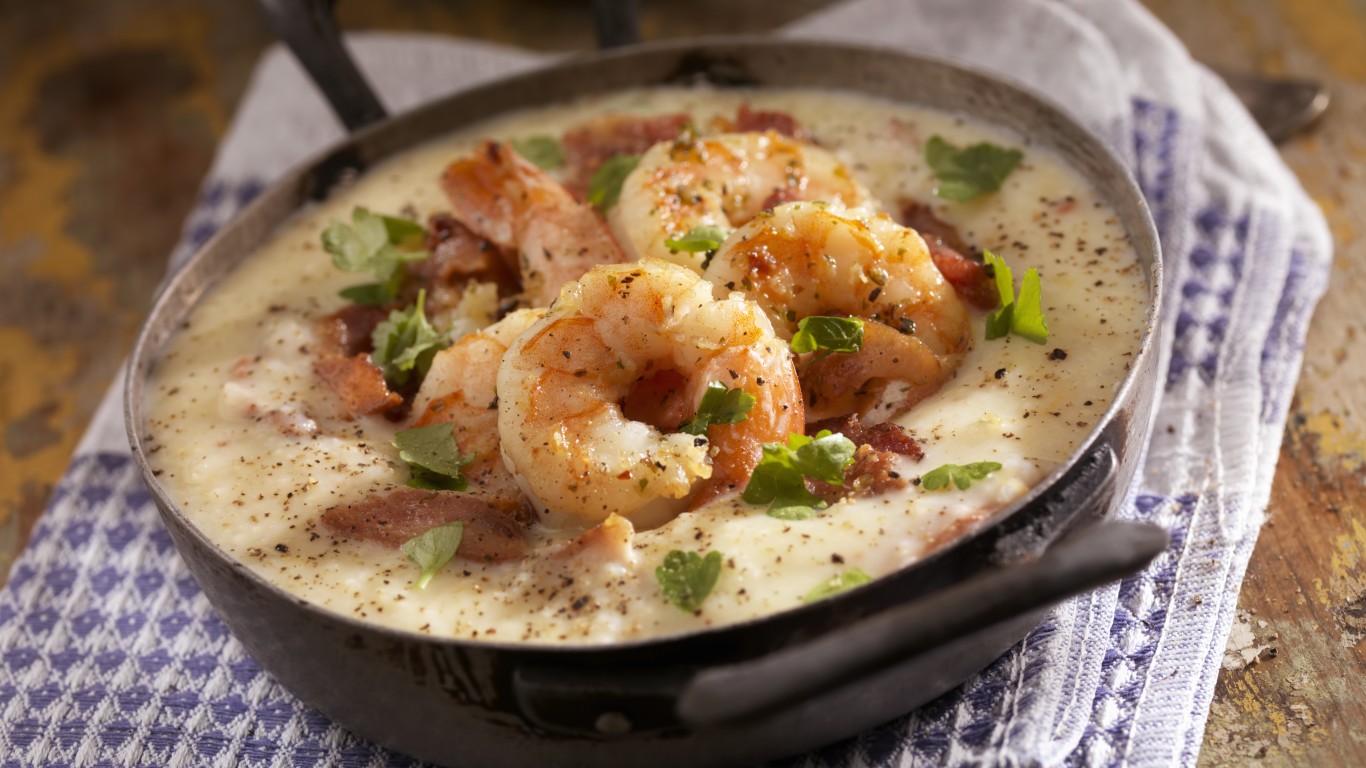 24/7 Wall St.
24/7 Wall St.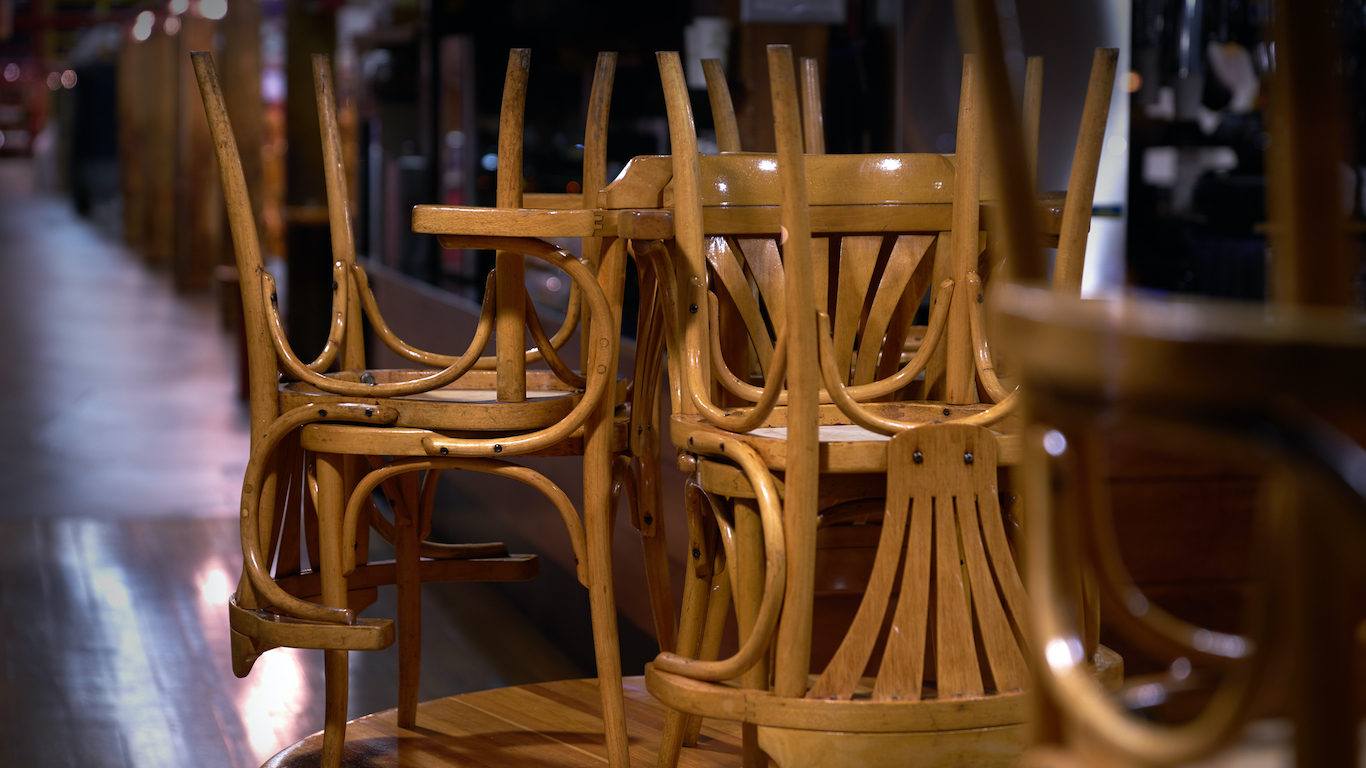 24/7 Wall St.
24/7 Wall St.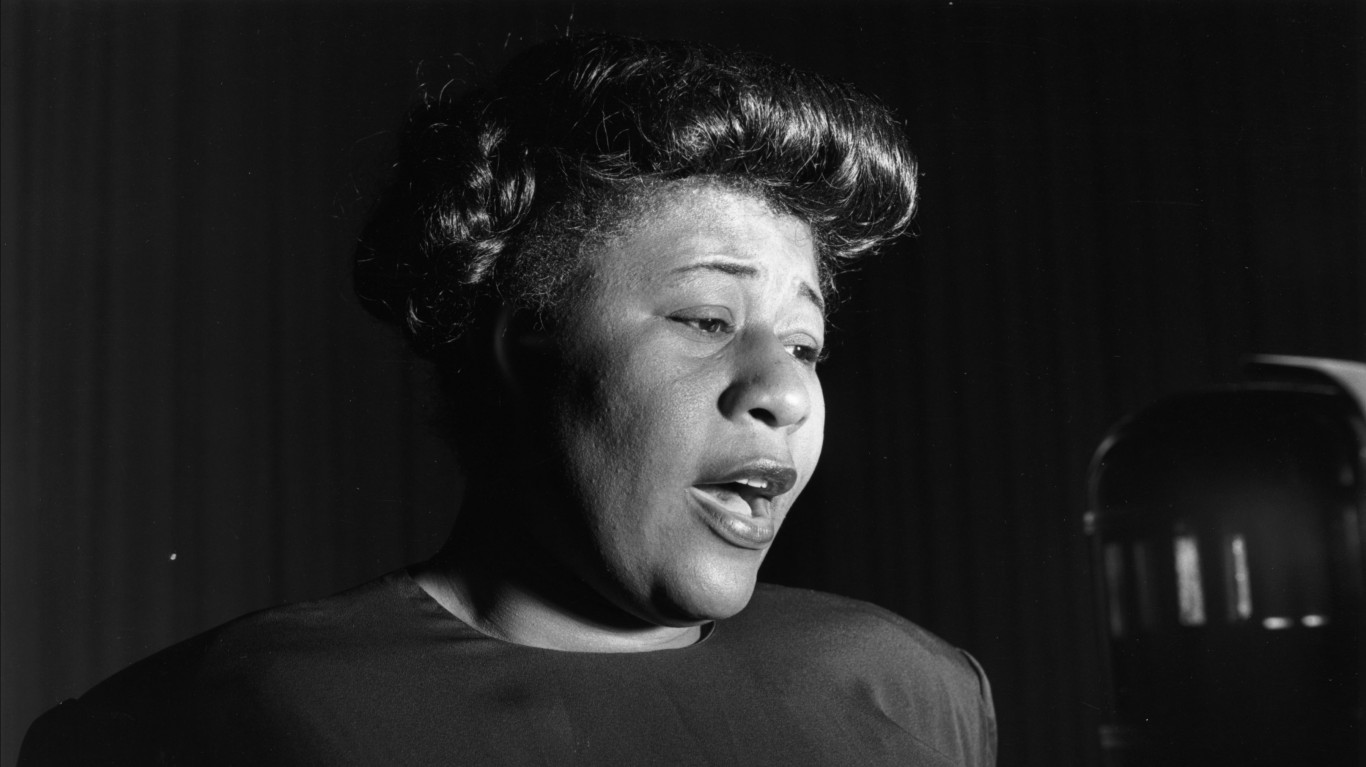 24/7 Wall St.
24/7 Wall St.

